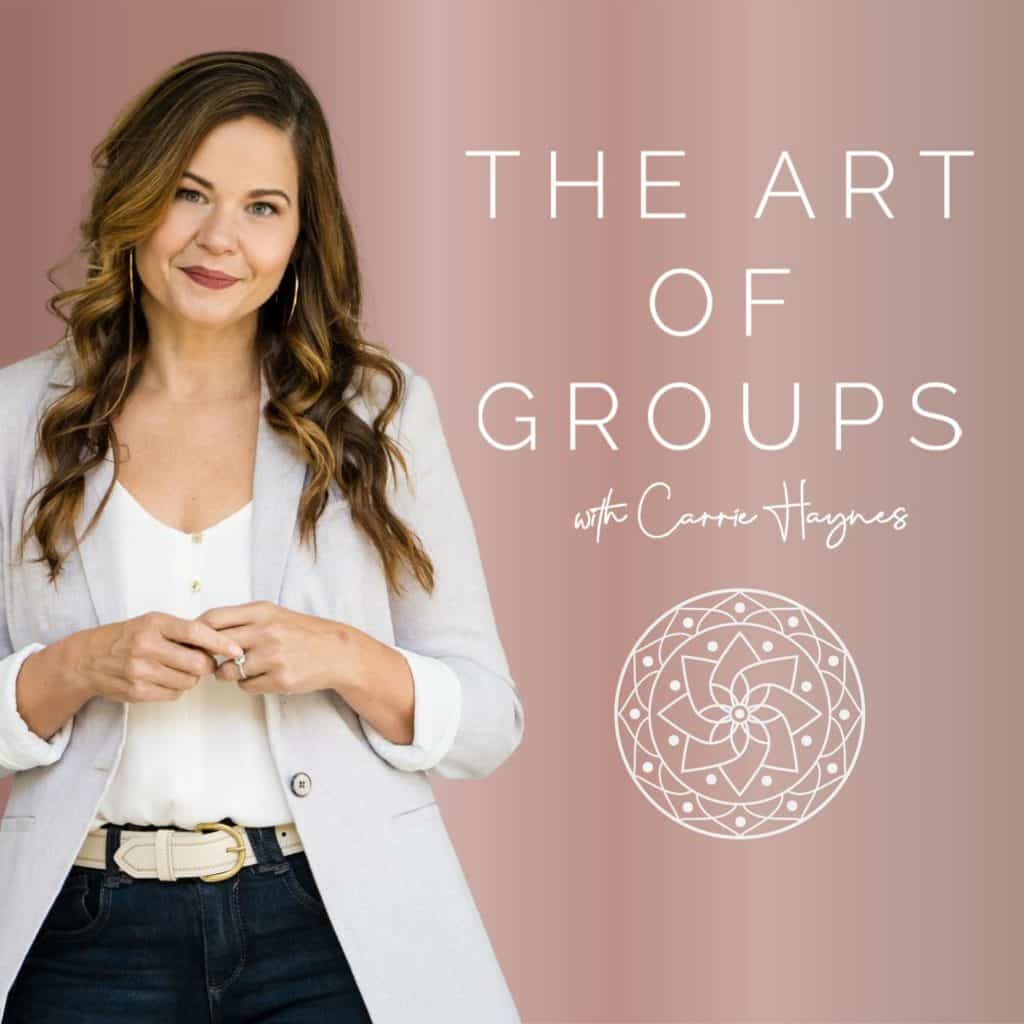
How To Set Your Group Therapy Rates
Setting the right rate for your group therapy services can be challenging, but it’s crucial for both your practice’s success and your clients’ satisfaction. This article will guide you through determining the best private pay rate for your group services (group therapy, classes, mastermind groups, training groups, coaching groups). I also created a handy Group Therapy Rate Calculator (below) to help you easily understand how to obtain your financial and lifestyle goals.
I have based my article on colleagues that have some great content about determining rates for individual therapy. For example, please read this wonderful article written by Gordon Brewer at The Practice of Therapy. It is one of the best resources I’ve found for setting your individual therapy rates.
Understanding the VALUE of Your Group Therapy Services
The first step in setting your rates is understanding the true value of your group therapy services. Many professionals follow a rule of thumb that group therapy should cost 25-50% of the rate for individual therapy. For example, if your individual therapy rate is $150, your group therapy rate might be between $37.50 and $75. However, this approach may not fully capture the unique value of your group sessions. I often hear from clients that group therapy sessions are more valuable than individual sessions. For example, a good quality process group focused on social anxiety, with an experienced group facilitator, likely would provide greater value than individual work with that same clinician. It would then make sense that a group session like this should cost more than an individual session at $150.
Of course, not all groups are created equal. There are plenty of groups that are less valuable than individual meetings with the therapists. For example, psychoeducational groups that mostly impart information to clients would probably be less valuable than having the same amount of time individually with a therapist.
If your group services are more valuable than individual work, it could be detrimental to simply charge 25-50% of your individual rate. It might not be worth your time and energy to get a group up and running if your profits are too low. Over the years I’ve interacted with several highly skilled group therapists that decided to discontinue group services simply because they weren’t making as much money as they did seeing an individual client during that hour.
To understand the value of your group, consider the following:
- Client Feedback: Many clients find group therapy to be more valuable than individual therapy. This perception of value can significantly influence how much you can charge. You should consider asking current group members (or potential group members), “How much would you be willing to pay for this group?”
- Your Expertise: If you’re a skilled group leader with a specialty, like online process-oriented treatment groups for social anxiety, the value of your group might be higher than your individual therapy rate.
- Market Dynamics: Assess the local market to determine if your group therapy rate aligns with or exceeds the value you provide.
An example from my practice:
For me, I have been charging $250 for a 45-minute individual therapy session (most clients get some, or all, reimbursed through submitting a superbill). Currently I have about seven weekly individual clients that pay that rate, and about 5 that pay a sliding scale rate ($40-100). A few years ago I determined that $120 would be a good rate for a 90-minute weekly group therapy session for an online college student interpersonal process group. We had eight members and ran the group for a full academic year. Five members paid the full rate while three paid a reduced-scale rate or pro bono (you can pull out your calculator to see how much money I made each month from that group).
Currently, I have three online process groups for therapist. I’ve been doing $100 as the full rate. Group members often state that $100 for a 90-minute high quality group with other therapists is worth so much more than a 45-60 minute individual session (that might cost $150-250 per session). About half of my group members the full rate, while half pay a sliding scale rate (I have a lot of early career therapists in my groups).
Navigating Anxiety and Money Mindset
If you are like me, you might feel stress trying to imagine the reactions of potential clients when they learn about my rates for individual therapy, group therapy, or consultation services. Will they outwardly scoff at me? Or will they outwardly agree the rate is ok while inwardly believing I’m a greedy and say they’ll reach out to me later? Or, ideally, will they actually feel positively about paying my rates for their desired service because they can clearly tell it is worth the cost? While I’ve experienced the whole gambit of responses from potential clients over the years, I’ve gotten better at openly and honestly communicating my value and helping clients determine if it would be a good investment to work with me (in individual therapy, group therapy, or private practice consultation).
If anxiety is your primary struggling point, it may be helpful to connect with a private practice consultant to help you understand your emotional stumbling blocks to achieving the kind of practice that will help you thrive professionally and personally.
Nate, can you walk me through your process for determining group therapy rates?
OK, I know some people want detailed steps, so here is my best attempt. If this is too information dense for you, just skip down to the Group Therapy Rate Calculator (below).
I believe it’s best to start with setting your financial and lifestyle goals.
Most money mindset experts will tell you to start with your end goal. One of my favorites is Tiffany McLain, and I consistently watch her walk her therapists through a process of (1) setting their yearly financial goals, (2) setting lifestyle goals (e.g. how many clinical hours/week and how many weeks of vacation), and then (3) doing the math to figure out what their hourly rate should be.
For instance, if you want to gross $100,000 per year from individual therapy alone. You decide that you will meet with clients 46 weeks out of the year (with 4 weeks of vacation and 2 weeks of sick time), and that you will see 20 clients each week (e.g. 5-6 clients a day Monday through Thursday). With these numbers, you can figure out that you should charge about $110 (or more) per session.
$100,000 ÷ 46 (weeks) ÷ 20 (clients per week) = $109 (client rate per session)
In most places in the US, you can easily develop a thriving private pay practice at $110 a session. Now, to have a little fun with these numbers, let’s pretend that you realize that other clinicians in your area are charging $150-$200+ a session for individual therapy and so you decide that $110/session is too low. You run the numbers with charging $175 a session and see that you could gross $161k a year with the same amount of clients (20 clients a week).
$175 x 20 (clients per week) x 46 (weeks) = $161,000 (year)
…or… you figure out that you could still make your $100k a year goal with only seeing 13 clients per week.
$100,000 ÷ 46 (weeks) ÷ $175 (client rate) = 12.5 (clients per week)
For my spouse and I we realized how much more generous we could be with sliding scale and pro-bono work if we charged $200 a session. At the time of writing this article, we each see about 10 clients a week at the full rate, and 4 clients a week at a reduced rate or pro-bono.
If you want to add group services, the best place to start is with your financial and lifestyle goals and work backward to find your rates (and then see if they line up well with the value of your group).
Using the situation above, let’s say your lifestyle goal is that you only want to move from 20 clients a week down to 10 individual clients a week while keeping the same income as you did with 20 individual clients. Or maybe you want to increase your finances while continuing to do 20 clinical hours a week. Let’s practice running the numbers for both of these scenarios…
Group Therapy Rates Calculator
You can use the calculator below to help you determine the best rate(s) for your group therapy sessions. You can slide each of the numbers around in order to easily manipulate things. Use it to play with different rate scenarios and see which aligns best with their financial goals and group value. I think it is best to practice running different rates to see which rate will actually help you feel super excited about running a group.
How Do I Fill My Groups?
Once you determine your rates, the natural next question often is, “How Do I Fill My Groups?” Of course this will largely depend on your situation and the kind of group(s) you are wanting to run.
Here are a few trusted consultants (including myself) who specialize in helping therapists fill their groups effectively. I would love to schedule a 15-minute exploration meeting to see if I would actually be able to help you meet your goals. This consultation work is my bread and butter, and I get excited to help therapists learn how to make good money running groups.
My ideal consultation clients are therapists that want to run therapy groups and need help learning how to convert individual clients into group members.
Four consultation options for learning how to FILL your groups
(1) Nate Page, PhD, LP, Certified Group Psychotherapist
My ideal consultation clients are therapists that want to therapy groups and need help learning how to convert their current (and future) clients into group members.

(2) Sara Schreiber, LCSW
Sara offers one on one consulting for clinicians that want to start a private practice, and for those wanting to run groups in private practice. You can learn more about Sara and her consulting services on her website Collaborative Minds Counseling LLC.

(3) Katie K. May – The Group Guru
Katie helps therapists market, fill and run group programs so that they can make a massive positive impact on the world (and their bank account) at the same time. You can learn more about Katie on her website Become a Group Guru: https://www.becomeagroupguru.com/ or her wonderful Facebook group with the same name Become a Group Guru.

(4) Carrie Haynes
Carrie helps therapists and healers create, promote, and facilitate transformational groups. You can learn more about Carrie on her website: http://www.artofgroups.com/group-training/

Article author:
Nate Page, PhD, LP, CGP (he/him)

Positionality: White, cis-het male
Nate is a licensed psychologist and Certified Group Psychotherapist. He specializes in anxiety concerns and college student mental health. He runs the podcast Your Anxiety Playground. Nate sees some individual therapy clients, but mostly focuses on running therapy groups and training therapists to run groups.
Nate does ADHD testing for adults (18+) in Minnesota, and can also do adult autism assessment. ADHD evaluations typically take 4-6 hours.
Nate is the founder of Group Therapy Central LLC, and each week facilitates several different training groups for therapists.